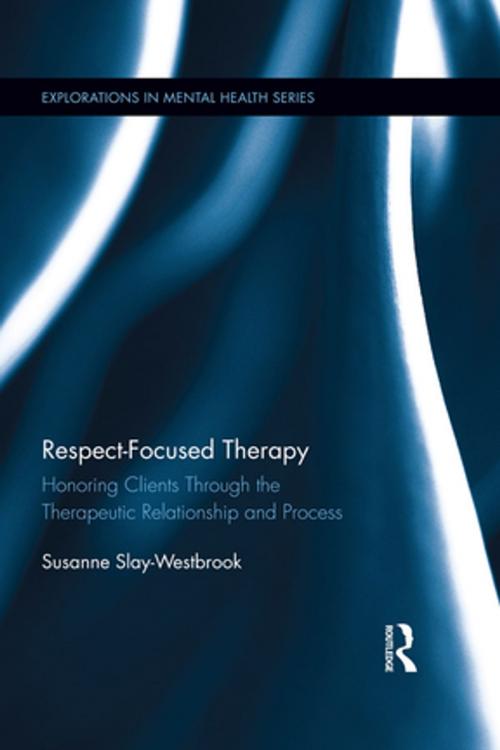Respect-Focused Therapy
Honoring Clients through the Therapeutic Relationship and Process
Nonfiction, Health & Well Being, Psychology, Family Therapy, Counselling, Mental Health| Author: | Susanne Slay-Westbrook | ISBN: | 9781317442547 |
| Publisher: | Taylor and Francis | Publication: | September 13, 2016 |
| Imprint: | Routledge | Language: | English |
| Author: | Susanne Slay-Westbrook |
| ISBN: | 9781317442547 |
| Publisher: | Taylor and Francis |
| Publication: | September 13, 2016 |
| Imprint: | Routledge |
| Language: | English |
Therapists have a unique opportunity and responsibility to provide a respectful environment for their clients, yet respect has not received adequate attention in the psychotherapy community and related research. Respect-Focused Therapy: Honoring Clients Through the Therapeutic Relationship and Process sets forth the formulation of respect-focused therapy (RFT), a new approach to psychotherapy that addresses the quality of the client–therapist relationship and therapeutic process. This volume treats respect as a combination of action, attitude and open-mindedness, urging therapists to recognize their own biases and beliefs and be willing to suspend them for the benefit of their clients. Using Martin Buber’s "I-Thou" relationship as a conceptual model, Slay-Westbrook provides core principles of respect and demonstrates how to incorporate these into the therapeutic relationship to best foster a healing environment.
Therapists have a unique opportunity and responsibility to provide a respectful environment for their clients, yet respect has not received adequate attention in the psychotherapy community and related research. Respect-Focused Therapy: Honoring Clients Through the Therapeutic Relationship and Process sets forth the formulation of respect-focused therapy (RFT), a new approach to psychotherapy that addresses the quality of the client–therapist relationship and therapeutic process. This volume treats respect as a combination of action, attitude and open-mindedness, urging therapists to recognize their own biases and beliefs and be willing to suspend them for the benefit of their clients. Using Martin Buber’s "I-Thou" relationship as a conceptual model, Slay-Westbrook provides core principles of respect and demonstrates how to incorporate these into the therapeutic relationship to best foster a healing environment.















